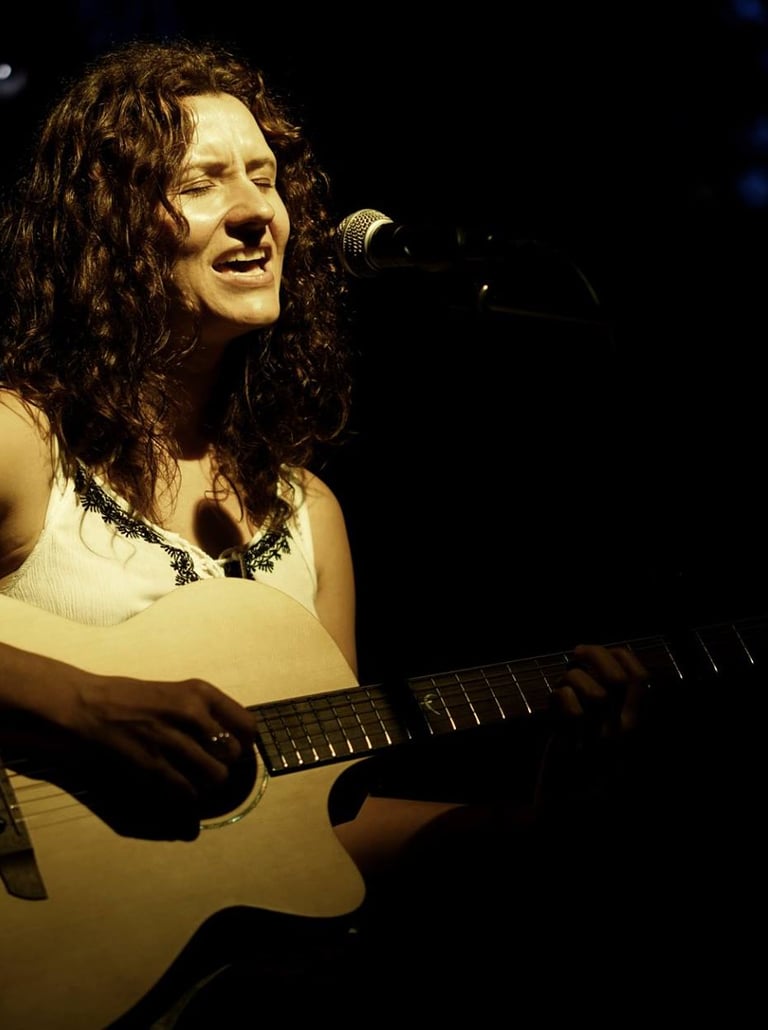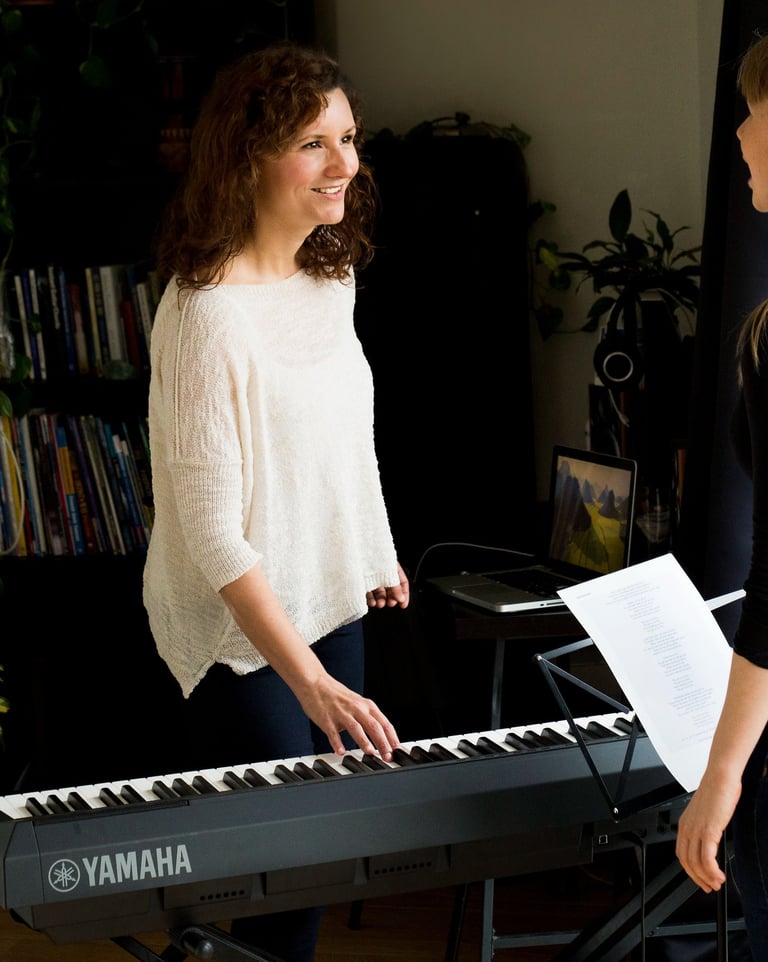My Vocal Story
I was a young and passionate singer songwriter, dreaming of sharing my songs with the world. But even though I had been musical from a young age and had a high school music scholarship;
Singing felt wrong and uncomfortable physically
I had debilitating performance anxiety
I could never trust or know what sound was going to come out of my mouth
I had no power or stability
My speaking voice and singing voice were two different people.
So of course I took singing lessons. I was committed so I prioritised my disposal income on expensive lessons with high level teachers and I practiced daily. I can’t say that there weren’t improvements, but in the end, even after many years, I still had the same core issues and still couldn’t confidently open my mouth knowing that I could sing well.


At times I gave up on lessons and singing exercises, resigning myself to being limited with the voice that I had. Inevitably, after frustration and tears during recording sessions, I’d try another teacher, another technique.
Eventually I discovered body and neurologically based methods like The Alexander Technique and Feldenkrais. Shifts started to happen and I started to understand how the body was important to the voice, but my singing still wasn’t “there”. It wasn’t until discovering the work of Andrew Byrne, creator of The Singing Athlete and the brain-based training that Andrew bases his method on, that I could finally do things that I never could do before with my voice - despite, by that time, over 20 years of training with various teachers. I finally understood what I needed to do, why I hadn’t been able to do it previously, and what I needed to do to make the changes I needed.
By this time, my passion for song-writing and self expression through singing my songs had fizzled out. I had never been interested in singing covers and being “a singer” in this sense. But I had become extremely interested and passionate about experimenting with how doing different things with my body affected my voice and in teaching these drills to others to help them progress faster.
My Teaching Story
The first time I gave a lesson, I was filled with an immense amount of joy and energy, and that moment made it clear: this is what I wanted to do.
As I taught more students, I noticed a pattern. Some singers responded beautifully to singing exercises while others left me confused and frustrated. No matter what exercises, scales, cues, explanations, or demonstrations I tried… nothing seemed to work.
During my training, I also observed a highly skilled, renowned (and expensive!) mentor teaching his students. Even he didn’t make big improvements with certain singers. I felt very deflated.
Was it possible that some people just couldn’t improve?
Were some singers simply fated to stay “stuck”?


Strangely, when I was the student, I had never thought to blame the teacher. But as a teacher, I felt the weight of every singer who didn’t make progress. I felt like I was failing them when I couldn't make a noticeable improvement in the lesson.
Everything changed when I discovered applied neurology.
Neuro drills didn’t just unlock my own voice — they unlocked my teaching.
Instead of cycling through endless vocal exercises, trying to find one that would work, I started looking at the students' bodies. I asked for their history: movement habits, underlying conditions, injuries, pain.
Then I gave them a neuro drill tailored to what I observed and learned about them.
We did the singing exercise again.
And this time — it worked. Often with a drastic difference.
I've had quite a few amazed and shocked faces on that second try!
Doors opened. Voices opened.
Teaching became exciting again.
And every singer, even the “hard cases,” had a way forward.
Applied Neurology & Brain-Based Voice Training
The Singing Athlete – Level 2 Certification (Andrew Byrne), 2024
Brain-based voice training covering anatomy and neurology of the nose, sinuses, face, vestibular and visual systems, plus assessments and drills.
The Singing Athlete – Level 1 Certification (Andrew Byrne), 2024
Applied neurology for singing: anatomy and neurology of breathing, posture, larynx, palate, jaw, tongue, neck, shoulders, spine, plus assessments and drills.
Z-Health Performance Solutions – Movement Re-education Specialist (Applied Neurology), 2023
Z-Health R-Phase – Rehabilitation, Reeducation & Restoration, 2023
Vocal Technique & Pedagogy
Modern Vocal Training – Level 1 Teacher Certification, 2023
Somatic Voicework™ The LoVetri Method – Level 1 & 2 Certified Teacher Training (Jeannie Lovetri), 2020–2021
Speech Level Singing – Fast Track Teacher Certification (Seth Riggs), 2013
Edward Staunton (Soho Vocal Tuition) – Private lessons, mentoring & teaching observation, 2012–2014
Tom Burke Voice Studio – Broadway VoiceBox, 2014–2016
Dr Trineice Robinson – Private vocal lessons (Somatic Voicework faculty), 2020–2021
Voice Science, Health & Neuroscience
Shenandoah University – Vocal Athlete’s Guide to Vocal Fitness and Wellness (Marci Rosenberg), 2020
Heidi Moss Erickson – Singing in the Brain (Neuroscience of singing), 2020
Somatic Methods & Bodywork
Feldenkrais Method – Teacher Training (Richard Corbeil & Angel Di Benedetto), multiple modules 2017–2018
Feldenkrais: Voice in the Amherst Training (Corbeil & Sussuma), 2018
The Alexander Teacher Training School (Anthony Kingsley) – Certified Teacher Training in the Alexander Technique, 2015–2017
Performance & Stage Work
Steven Memel – The Science of Switching On (Performance for Singers), 2010
Academic Degree
Middlesex University – Bachelor’s Degree in Music Performance (Distinction), 2000–2003
Education & Professional Training
Get in touch
info@voicebodybrain.com


